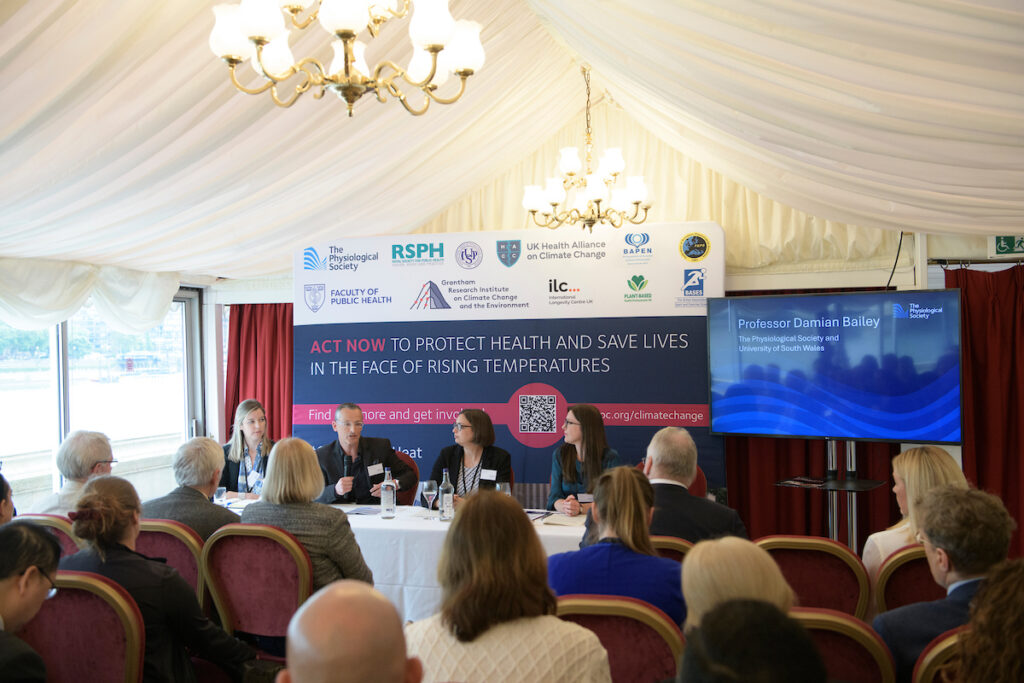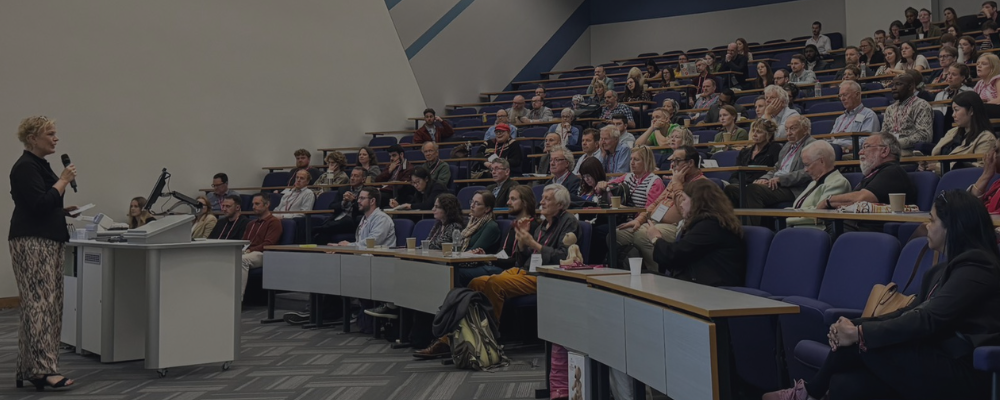
Policy Focus
Shania Pande, Policy Officer, The Physiological Society
“The launch of the Roadmap in Parliament was attended by over 150 delegates from across the health and science sectors, together calling for immediate, coordinated action to reduce the projected rise in deaths and health issues due to increasing temperatures. The event took place during the 2024 General Election campaign. With the Election concluded and a new Parliament in place, The Society is engaging with MPs to priorities this issue.”

Climate change and physiology
Climate change has been described by the United Nations as ‘the single biggest health threat facing humanity’. Among its many consequences, the increasing frequency and intensity of extreme heat events stand out for their effects on the physical and mental wellbeing of the population.
Everyone is at risk, particularly those with reduced ability to cope with extreme heat, such as people who are young, older or pregnant, those with pre-existing health conditions, and people working or living in unsuitable environments. Despite this risk, the world remains ‘dangerously unprepared’ for these rising temperatures and heatwaves. Thus, we need immediate and coordinated action to protect health and save lives in the face of climate change.

The Roadmap for Global Heat Resilience
To tackle these interrelated challenges and strengthen global resilience, in June 2024, The Society launched its Roadmap for Global Heat Resilience consensus statement calling for urgent global action to save lives in the face of rising temperatures due to climate change. The Roadmap sets out six priorities to mitigate the health impacts of rising temperatures and contribute towards a resilient and thriving future for all communities:
- Collaboration will be key. Only by working in a transdisciplinary way and by bringing together people from across diverse fields such as health, policy, physiology, building design, engineering and more can we fully tackle the challenges of extreme heat and protect the most vulnerable.
- It is vital that both physical and mental health are considered in the discussion around the impact of rising temperatures on the human body. There is still a lot that we don’t know about the link between heat and mental health and much to do in this area.
- Physiology is uniquely placed to help solve the multifaceted problem that is the impact of rising temperatures on human health because physiology intersects many fields and provides a human-centred approach and a focus on mechanisms.


Exercise science and health
Sport and exercise science are crucial to tackling the physical and mental health impacts of rising heat. Exercise science is important to building human resilience amid climate change. One of the key recommendations for Government from our consensus statement was to expand public health education and implement programs that focused on medium- and long-term behavioural changes, such as increased physical activity and better nutrition to improve heat resilience. Only by ensuring that people stay fit, eat a nutritious and balanced diet, and maintain a good level of strength and balance can we ensure that they are able to adapt to extreme temperatures.
While building resilience and adapting to climate change is necessary, we must first take every measure possible to mitigate its effects. This can be achieved by encouraging active travel and promoting sustainable diets, which will have numerous climate and health co-benefits and help build virtuous cycles of resilience amongst the population.
It is thus important to build public awareness about climate resilience and ensure it is a top political priority. With that in mind, The Physiological Society will be hosting a pre-conference panel session at British Association of Sport and Exercise Sciences’ (BASES) Annual Conference on 20 November 2024. The session will focus on exercise science and its contribution to mitigating and adapting to heat and climate change and hear from researchers from The Society, BASES and the UK Sports Institute.
Stay up to date with our Policy activities
Find out more about our consensus statement on a Roadmap for Global Heat Resilience and our past work in the area.

Get involved with our climate change projects
Our Climate & Physiological Resilience Network is an interdisciplinary network designed to address the physiological impacts of climate change on human health and enhance the resilience of individuals and communities. Sign up for the opportunity to participate in our upcoming projects, such as our current work on occupational health and safety during heatwaves.




